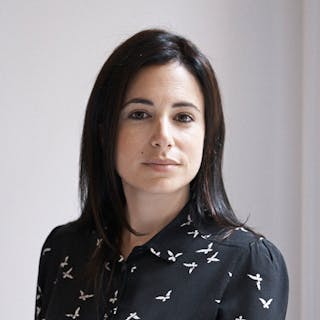WWF and UN target agencies and marketers with brief to make sustainability sexy
WWF, the United Nations and WiLD Studios have teamed up to launch Project Extraordinary, a global initiative to enlist the world’s top marketers and agencies to generate consumer awareness and action around sustainability.
With an aim to reach 1 billion people by 2020, the project wants to inspire brands to make sustainability so desirable that global consumers will prioritise it as a key purchasing decision.
To achieve this aim, Project Extraordinary is inviting the world’s best creative agencies to develop short-form video concepts and storyboards with the winning films to be made by WiLD and screened by WWF at the Cannes International Festival of Advertising, as well as at UN Forums around the globe.
The entries will be judged by a jury of 24 experts including Google VP of global marketing Torsten Schuppe, Mars global VP of sustainability Kate Wylie, Unilever global brand director Cigdem Yildiz Kurtulus, and WWF global conservation director Deon Nel.
Livia Esterhazy, chief executive officer of WWF New Zealand, who is leading the project for WWF, told The Drum the organisation has a mandate from the UN to help solve issues around biodiversity loss.
“The first component of this is, how do we get 1 billion consumers to recognise the importance of biodiversity on this planet by 2020? Because obviously if we don’t get them to care about biodiversity, then how are we going to get them to change the behaviour. The second goal is to arrest the curve of biodiversity loss on the planet by 2030,” says Esterhazy.
The project was created by WiLD Studios, the short-form film division of New Zealand documentary company Natural History in a bid to help protect and preserve the environment. Partnering with WWF and the UN Environment Program, Project Extraordinary aims to inspire brands and agencies to help make sustainability a central issue going forward.
“The best way to get to consumers is through marketers and their advertising agencies because they are the ones that are telling consumers what they should buy, what sort of lifestyle they should have, and what purchases they should make.
“The whole point of this project is to pose the biggest problem that we have, to the biggest brains and ask them, how do we integrate sustainability into a brand’s communication in a way that is not green-washing but that becomes part of a brand and its communications.
"The idea is that it becomes part of a norm and all consumers, by 2020, have sustainability as one of the top three triggers in their purchase decisions. If we can get them all thinking that way it could have the downward impact of supporting the planet from a sustainability perspective.
“We are talking global behaviour change, it’s certainly not going to be solved in year one. This is the start of a long-term journey, ” says Esterhazy.
WWF is also engaging 20 leading brands, including Unilever and Adidas, to arrange a workshop in Cannes where marketers will discuss techniques and strategies for spreading sustainability messages to consumers.
“Obviously, these are commercial organisations that still need to sell products and we are not saying we want them to advertise less, or sell less, but we are looking to discuss how these organisations can do this in a way that will help the planet.
While a number of brands are already implementing sustainability programs and beginning to use these in their communications, Esterhazy believes there is a need for companies to come together and share learnings in a bid to ramp up awareness and demand among consumers.
“There are definitely the beginnings of a movement in this space, we are hoping to accelerate this and speed up the process rather than letting things trickle through. The world doesn’t have time for it to trickle through, to be bluntly honest. Our aim is to accelerate things much faster, so the demand is there from consumers.
Esterhazy, who worked in advertising prior to her role at WWF, cites the role advertising has played in shifting public perceptions of smoking and drink driving and helping to create new norms of behaviour.
“Time and time again, I have seen how marketing has physically and mentally changed humans, whether it’s their behaviour, their purchases, or their way of life. If it’s changed it in ways for the good, like drink driving, why not also for inspiring consumers to purchase products in a way that is conscious of our environment and living within our limits,” says Esterhazy.
Project Extraordinary competition has attracted interest from agencies around the globe, including India, US, UK, Philippines, Canada, Germany, New Zealand and Australia. Entries close on April 12.


